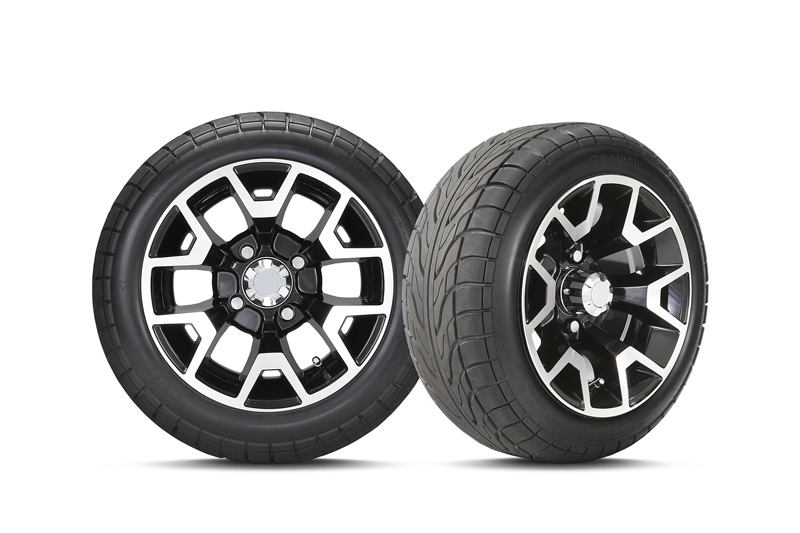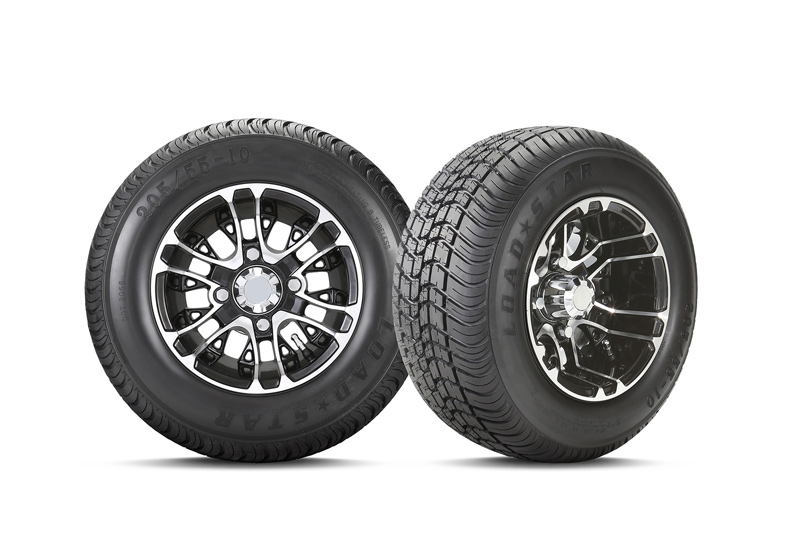How Important Is Tire Pressure?


The rubber your golf or utility vehicle rides on takes on an unprecedented role in car control, safety and comfort. It is crucial to ensure the vehicle’s tires are inflated to their proper tire pressure. Although tires have a MAX tire pressure rating molded into the sidewall of the tire, this does not mean this is the pressure the tires should be inflated to. Club Car qualifies each tire through rigorous testing to establish the proper tire pressure to meet performance, safety and stability requirements for our vehicles.
The proper Pounds per Square Inch (PSI) can generally be found inside the Owner’s Manual (OM), Maintenance and Service Manual (M&S) or the Approved Tire and Wheel Matrix available at www.clubcar.com. To keep tabs on your tire pressure, you can purchase an air pressure gauge at any auto parts store. Let’s look into the cons of improper tire inflation.
Problems With Over-Inflation:
If a tire is overinflated, it will become stiff and rigid and its footprint (the rubber that contacts the road) will be greatly reduced. This will decrease the driver’s ability to control the vehicle and puts the tire more at risk of damage when coming into contact with potholes or debris on the road. Excess tire pressure will also cause increased tire tread wear in the center of the tire.
Problems With Under-Inflation:
An underinflated tire can cause numerous problems for a vehicle. The first is that the tire will lose its form and there will be an increase of rubber meeting the roadway, which can reduce the life of a tire. Other major issues with under-inflation are a reduction in energy efficiency or fuel economy due to the extra power needed to turn the soft rubber. Finally you will deal with reduced vehicle control. A properly inflated tire will allow for precise cornering and handling, while low tires can end up causing a bumpy, uncomfortable ride.
Proper tire inflation means that you’ll have the best possible control of your vehicle and optimize energy or fuel efficiency. To ensure your car’s tires are properly inflated, find out what their recommended PSI is and then use a quality air pressure gauge to measure it from time to time. If you find that your tire pressure is low, quickly put air in the tires to the recommended pressue, but don’t overfill!
